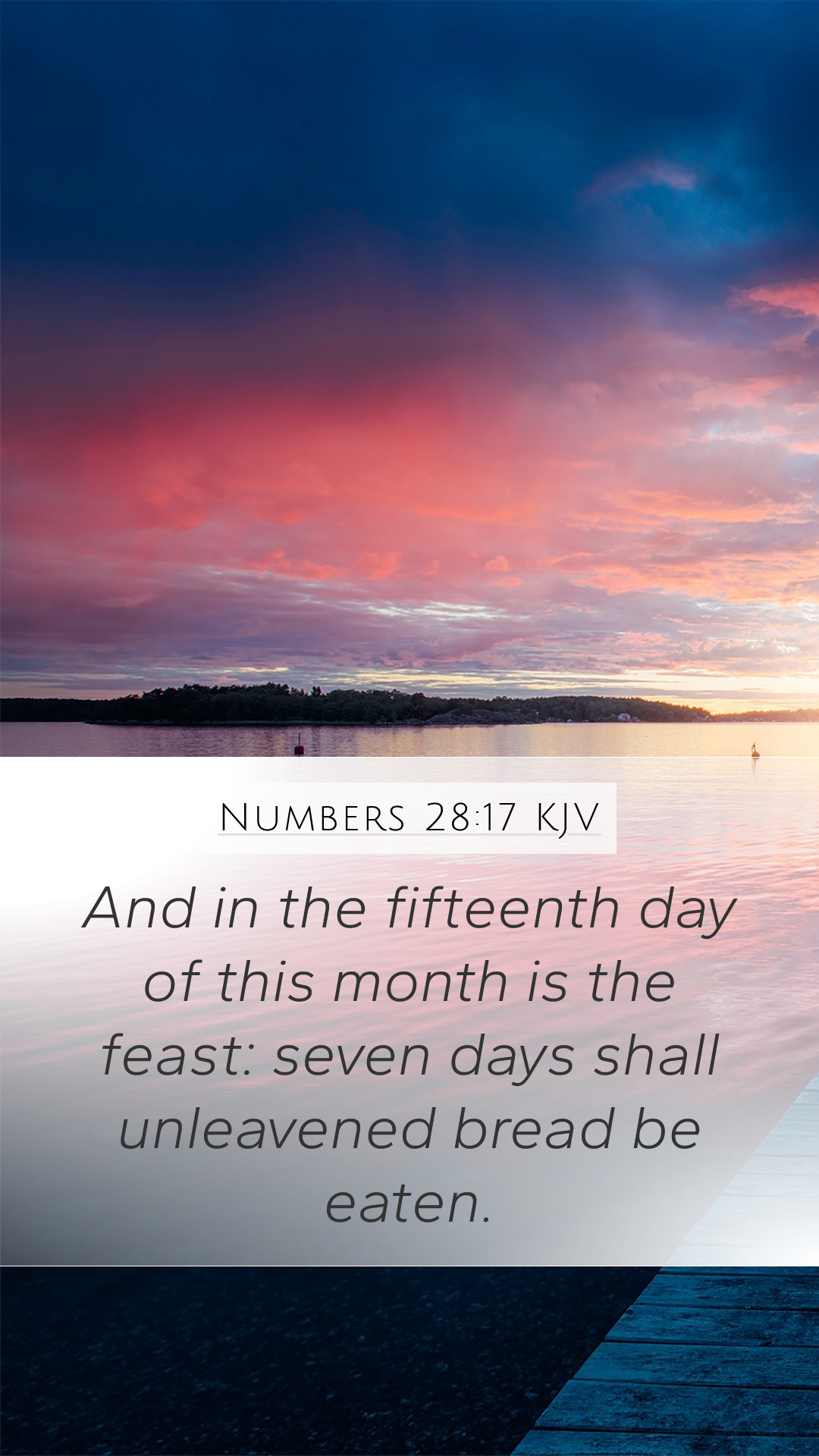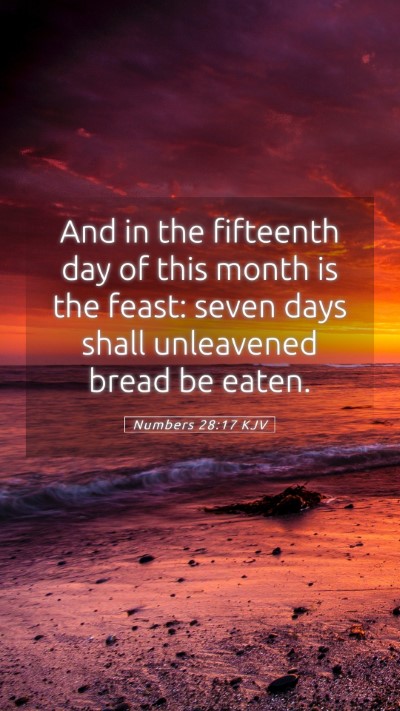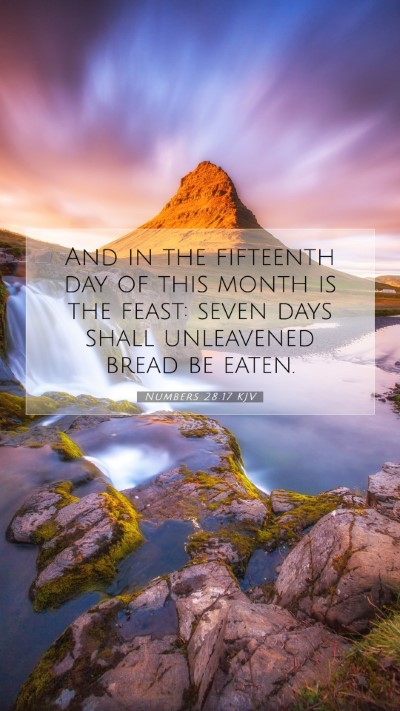Bible Verse Commentary: Numbers 28:17
The verse Numbers 28:17 states:
"And in the fifteenth day of this month is the feast: seven days shall unleavened bread be eaten."
Understanding the Context
This verse is part of God's commandments regarding the various offerings and feasts that were to be observed in Israel. The reference to the fifteenth day of the month indicates the beginning of the Feast of Unleavened Bread, a significant event in the Jewish calendar, stemming from the Exodus narrative where God delivered the Israelites from Egyptian bondage.
Meanings and Interpretations
According to Matthew Henry’s commentary, this verse marks a pivotal moment in the Jewish tradition, where unleavened bread is to be eaten for a duration of seven days. This practice symbolizes purity and separation from sin, as leaven often represents corruption and the permeating influence of sin in the Bible.
Albert Barnes also mentions that this feast is closely linked with the Passover, further emphasizing the historical context and its importance to the Israelite people. It serves as a reminder of their miraculous deliverance and establishes a ritualistic basis for remembering this pivotal event.
Adam Clarke elaborates on the practical aspects of the feast, underlining that the observance of the Feast of Unleavened Bread reinforces community identity and celebrates divine intervention. He emphasizes that during this period, the Israelites were instructed to remove leaven from their homes, presenting a tangible act of purification.
Spiritual Significance
This verse is rich with spiritual applications that extend beyond the historical context. It encourages believers to seek purity in their spiritual lives, reflecting the broader biblical theme of sanctification and holiness. The act of eating unleavened bread serves as a metaphor for the believer's call to live a life free from sin and compromise.
Application for Today
In applying this verse to modern life, believers are encouraged to adopt the spirit of the feast—removing influences that compromise their faith and embracing a lifestyle that honors God. This might involve personal reflection and the practice of fasting from certain distractions to focus on one's relationship with God.
Cross References
- Exodus 12:15 - Discusses the removal of leaven during Passover.
- Leviticus 23:6-8 - Outlines the observance of the Feast of Unleavened Bread.
- Matthew 26:17-19 - Jesus’ Last Supper, linked with Passover traditions.
Conclusion
Numbers 28:17 serves not only as a historical command but also as a profound teaching on the nature of sin, remembrance, and community identity in the biblical narrative. Understanding this verse within its cultural and spiritual context enriches our grasp of the overarching themes of redemption and holiness in Scripture. It invites deeper engagement with Bible study resources and encourages users to explore the significance of scripture to their lives.


